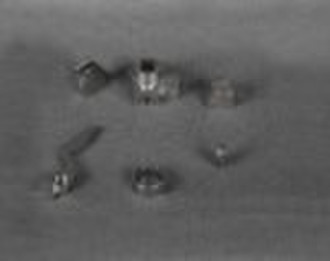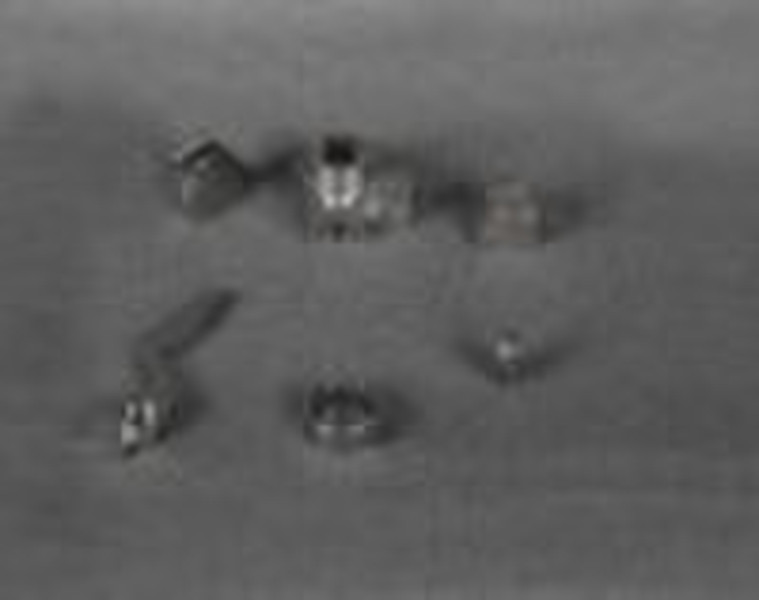Katalog
-
Katalog
- Auto & Motorrad
- Bauwesen und Immobilien
- Bekleidung
- Büro- und Schulartikel
- Chemikalien
- Dienstleistungen für Unternehmen
- Eisenwaren
- Elektrische Geräte & Zubehöre
- Elektronische Bauteile
- Energie
- Galanteriewaren
- Geschenke und Kunsthandwerke
- Gesundheit und Medizin
- Gummi und Kunststoffe
- Haus und Garten
- Haushaltsgeräte
- Koffer, Taschen & Hüllen
- Landwirtschaft
- Lebensmittel und Getränke
- Licht und Beleuchtung
- Maschinen, Geräte und Werkzeuge
- Maschinenteile und Herstellung Dienstleistungen
- Messapparat und Analysegerät
- Mineralien und Metallurgie
- Möbel
- Schuhe und Accessoires
- Schönheit und Körperpflege
- Service Geräte und -Ausstattung
- Sicherheit und Schutz
- Spielzeuge und Hobbys
- Sport und Unterhaltung
- Telekommunikations
- Textil und Lederware
- Transport
- Uhren, Schmuck, Brillen
- Umweltschutz
- Unterhaltungselektronik
- Verpacken und Drucken
- Werkzeuge
- Überschüssiger Warenbestand, Lager
Filters
Search
Schlossteil (MIM)
original-Preis: 0,10 USD
Chiao-tso-kung-k’uang-ch’ü, China
Produktionskapazität:
500000 Stück / Monat
Chiao-tso-kung-k’uang-ch’ü, China
0086-391-2980928

Chunqiang Ma
Kontaktperson
Basisdaten
| Ort der Herkunft | Henan China (Mainland) |
|---|---|
| Marke | QXT |
| Modell-Nummer | all |
Metal injection molding offers a manufacturing capability for producing complex shapes in large quantities. The process utilizes fine metal powders (typically less than 20 micrometers) which are custom formulated with a binder (various thermoplastics, waxes, and other materials) into a feedstock which is granulated and then fed into multiple cavities of a conventional injection molding machine. After the “green” component is removed, most of the binder is extracted by thermal or solvent processing and the rest is removed as the component is sintered (solid-state diffused) in a controlled atmosphere furnace. The MIM process is very similar to plastic injection molding and high-pressure die casting, and it can produce much the same shapes and configuration features. However, it is limited to relatively small, highly complex parts that otherwise would require extensive finish machining or assembly operations if made by any other metal forming process. MIM is used by many industries , such as medical device, telecom, electronics and automotive parts manufacturers, and is a viable and cost effective alternative to other types of metal processes, such as machining and casting. The MIM process is particularly well suited for the high-volume manufacture of relatively small, complex components requiring high strength, high performance and cost efficiency.CategoryMIMPMCastingMachiningPressingDensity96%86%96%100%100%ComplexityGoodNot-GoodMediumGoodNot-GoodTensile Strength GoodNot-GoodGoodGoodGoodSurface TreatmentGoodMediumMediumGoodGoodSmall CapabilityGoodMediumNot-GoodMediumGoodWall Thin Capability GoodMediumMediumNot-GoodGoodDesign Latitude GoodMediumMediumMediumNot-GoodMass Production GoodGoodMediumMediumGoodMaterial RangeGoodGoodMediumGoodMediumSupplying AbilityGoodGoodMediumNot-GoodGood
Lieferbedingungen und Verpackung
Packaging Detail: paper box or wooden box Delivery Detail: within 30 days after signing of contract
Hafen: Tianjin/ Qingdao
Zahlungsbedingungen
Letter of credit
Telegraphic transfer
-
Zahlungsarten
Wir akzeptieren:









